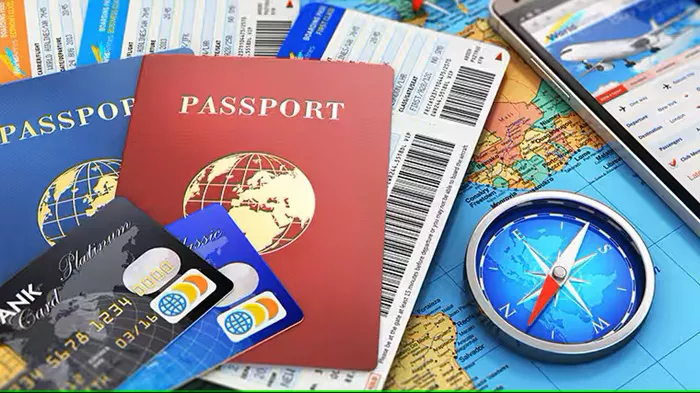Traveling can be an exciting adventure, but unexpected incidents can occur, disrupting your plans and causing financial stress. This is where holiday insurance comes in handy, offering peace of mind and financial protection against various travel-related mishaps. However, understanding how to claim holiday insurance effectively is crucial to ensure you receive the coverage you’re entitled to. In this comprehensive guide, we’ll walk you through the process step by step, from understanding your policy to handling delays or issues.
Understanding Your Policy
Before embarking on your journey, it’s essential to thoroughly understand the details of your holiday insurance policy. This includes knowing the coverage limits, exclusions, and any specific conditions that may apply. Familiarize yourself with the terms related to trip cancellation, medical expenses, luggage loss, and other benefits offered by your policy. By having a clear understanding of your coverage, you can avoid surprises and ensure that your claim is within the scope of your policy.
Preparation of Documents
When it comes time to file a claim, having the necessary documentation ready can streamline the process. Common documents required for a holiday insurance claim may include:
- Receipts for expenses incurred due to trip cancellation, medical treatment, or replacement of lost belongings.
- Medical reports or invoices detailing any injuries or illnesses requiring treatment during your travels.
- Proof of travel disruption, such as flight delay or cancellation notices, hotel booking confirmations, or receipts for alternative transportation arrangements.
By organizing these documents in advance, you’ll be better prepared to provide evidence to support your claim and expedite the processing time.
Step-by-Step Claim Process
Filing a holiday insurance claim doesn’t have to be daunting. Follow these steps to navigate the process smoothly:
Contact Your Insurer: Notify your insurance provider as soon as possible after the incident occurs. Most insurers offer a 24/7 claims hotline for emergencies.
Provide Details: Be prepared to provide details of the incident, including the date, time, and location, as well as any relevant documentation.
Submit Documentation: Complete any claim forms required by your insurer and submit supporting documents, such as receipts and medical reports.
Cooperate with Investigations: Your insurer may conduct an investigation to assess the validity of your claim. Cooperate fully and provide any additional information requested.
Keep Records: Maintain a record of all communication with your insurer, including dates, times, and the names of representatives you speak with.
Timeline Expectations
While every effort is made to process claims promptly, it’s essential to set realistic expectations for the timeline. The duration of the claims process can vary depending on factors such as the complexity of the claim and the insurer’s workload. Typically, you can expect to receive an initial response acknowledging your claim within a few days. From there, the processing time may range from several days to several weeks, depending on the circumstances.
Tips for a Smooth Claim
To ensure a smooth claim process, consider the following tips:
- Notify your insurer of any incidents or disruptions as soon as possible to avoid delays.
- Provide accurate and detailed information when filing your claim to expedite the process.
- Keep copies of all documentation submitted to your insurer for your records.
- Follow up with your insurer if you haven’t received a response within the expected timeframe.
Handling Delays or Issues
If you encounter delays or issues with your claim, don’t panic. Here’s what you can do:
- Follow up with your insurer to inquire about the status of your claim and any potential delays.
- If you’re not satisfied with the response or resolution provided by your insurer, consider escalating the matter to a supervisor or manager.
- If necessary, seek assistance from regulatory bodies or consumer advocacy organizations for guidance on resolving disputes with your insurer.
Claims via Mobile Apps
Some insurers offer mobile apps that allow policyholders to submit claims directly from their smartphones. If your insurer provides this option, download the app and familiarize yourself with its features before your trip. Mobile claims submission can save time and simplify the process, especially when traveling abroad.
Conclusion
Claiming holiday insurance doesn’t have to be daunting. By understanding your policy, preparing the necessary documents, following a step-by-step process, and staying proactive throughout the claims process, you can navigate the journey with confidence and maximize your chances of a successful outcome. Safe travels!
FAQs about Holiday Insurance
1. Is it worth claiming on holiday insurance?
Deciding whether to claim on your holiday insurance depends on various factors, such as the nature of the incident, the coverage provided by your policy, and the potential financial impact of the claim. It’s advisable to carefully review your policy documents and assess the situation before deciding to make a claim.
2. How to claim insurance for travel insurance?
To claim insurance for travel-related incidents, you typically need to follow these steps:
- Contact your insurance provider as soon as possible after the incident occurs.
- Provide all necessary documentation, such as receipts, medical reports, and incident reports.
- Fill out any claim forms required by your insurer accurately and thoroughly.
- Cooperate with any investigations or inquiries conducted by the insurance company.
- Keep records of all communication and documentation related to your claim for reference.
3. How can I make a travel insurance claim?
Making a travel insurance claim usually involves contacting your insurance provider and following their specific procedures. This often includes informing them of the incident, providing relevant documentation, and completing any necessary forms. Some insurance companies may offer online claim submission options for added convenience.
4. What does holiday insurance cover?
Holiday insurance, also known as travel insurance, typically provides coverage for various aspects of your trip, including:
- Trip cancellation or interruption due to unforeseen circumstances such as illness, injury, or natural disasters.
- Emergency medical expenses incurred while traveling.
- Loss or theft of luggage and personal belongings.
- Travel delays or missed connections.
- Emergency evacuation and repatriation.
- Some policies may also offer additional coverage for activities like adventure sports or rental car damage.
It’s essential to carefully review your policy documents to understand the specific coverage provided by your holiday insurance policy.
You Might Be Interested In




















